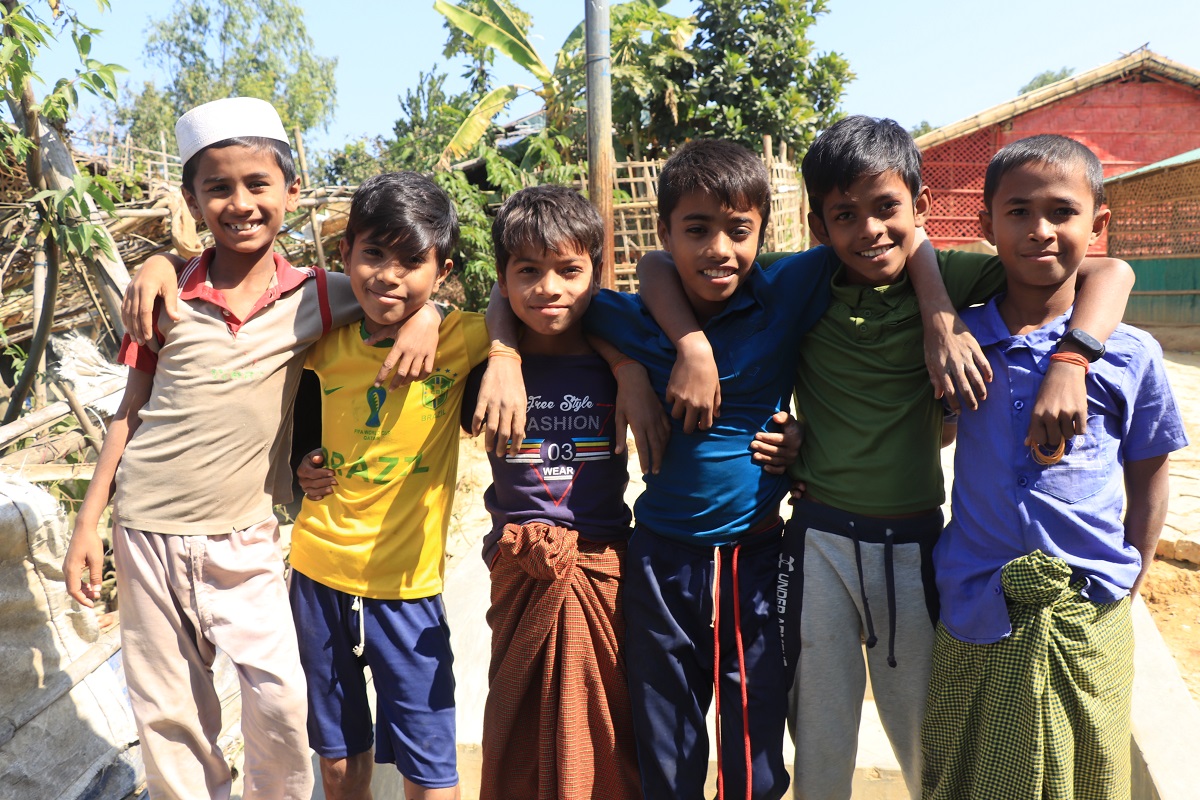Refugee Day: increasingly precarious conditions for Rohingya in Cox's Bazar
UNHCR has chosen "hope even far from the homeland" as its theme this year, but most refugees are worried about their children's future. In Bangladesh they receive only primary education, have no opportunity to work and are treated as a burden. In recent months, food rations have been reduced, dengue has spread and crime has increased.
Dhaka (AsiaNews) - For years away from home, unable to work, dependent on foreign aid and unwanted by their host country. Such is the plight of Rohingya refugees in the Cox's Bazar refugee camp in Bangladesh, where at least 1.2 million people who fled Burma's Rakhine state due to army persecution have resided since 2017.
After the military coup on Feb. 1, 2021, the country plunged into civil war and any possibility of return faded. An ethnic minority of the Muslim faith, the Rohingya have in practice been rendered stateless by the military and previous Burmese governments. Yet the Bangladeshi government is pressing for them to leave.
On World Refugee Day, which is celebrated today, the United Nations High Commissioner for Refugees (UNHCR) has chosen "hope even far from the homeland" as its theme.
But in Cox's Bazar camp, many are concerned about the future of their children: the youngest are receiving Burmese-language education in kindergartens run by nongovernmental organizations, but it is only primary level education. Those who arrived as teenagers may now be attending university.
"We live like domestic animals. We depend on the mercy of others. We cannot leave the camp. It is like a prison. If I were in Myanmar, I would start working in a company or doing business. I could use my talents for a career," Abu Bakkar, a 22-year-old young man living in Camp 13 in Ukhila, told AsiaNews.
His father, Dil Mohammed, was a teacher in Myanmar but is now unemployed. They both depend on assistance from UNHCR, the Bangladeshi government and some NGOs to live.
Recently the United Nations, due to lack of funds, was forced to further reduce food rations, first from to a month and then from to . Because of the poor conditions, some Rohingya are being involved in criminal networks.
The Commissioner for Refugee Relief and Repatriation, Mohammad Mizanur Rahman, told the media that donor support is steadily declining. Never before had so little money been allocated in the space of six months. "The nutritional problems of women and children are increasing.
The Rohingya are leaving the camp in search of food. As aid decreases, criminal activities such as smuggling and human trafficking increase, and as a result there are many incidents that threaten our security."
Sanitary conditions in the camps are also dire: last year a dengue epidemic broke out, but no casualty figures are known. According to some estimates, about 1,000 Rohingya have contracted the disease this year.
Imtiaz Ahmed, a former professor in the faculty of international relations at Dhaka University, commented on the lack of assistance to the Rohingya compared to the other needs of the international community: "We talk about the economic crisis because of the war between Ukraine and Russia, but the supply of weapons for the war does not diminish, while there is a reluctance to allocate funds for these afflicted people. It is unfair."
Bangladesh Prime Minister Sheikh Hasina called on the international community to help refugees return to Myanmar because overpopulation is already a major challenge for the South Asian nation of 165 million people.
The Catholic NGO worker explained that Bangladesh initially took in the Rohingya for humanitarian reasons but now the government wants them to leave as soon as possible: "Bangladesh is grappling with various problems and believes it is impossible to find a solution for the refugees, who can only be repatriated with the help of the Myanmar government."
According to a labor force survey released in March by the Bangladesh Bureau of Statistics, the unemployment rate is 3.6 percent, or 2.63 million people, while the total labor force is more than 73.40 million.
The Rohingya represent a great pressure while the economy has slowed down. Many garment factories, the country's main industry, have received fewer orders from Western countries in recent months.
06/12/2023 14:07
11/08/2022 14:35







.png)










